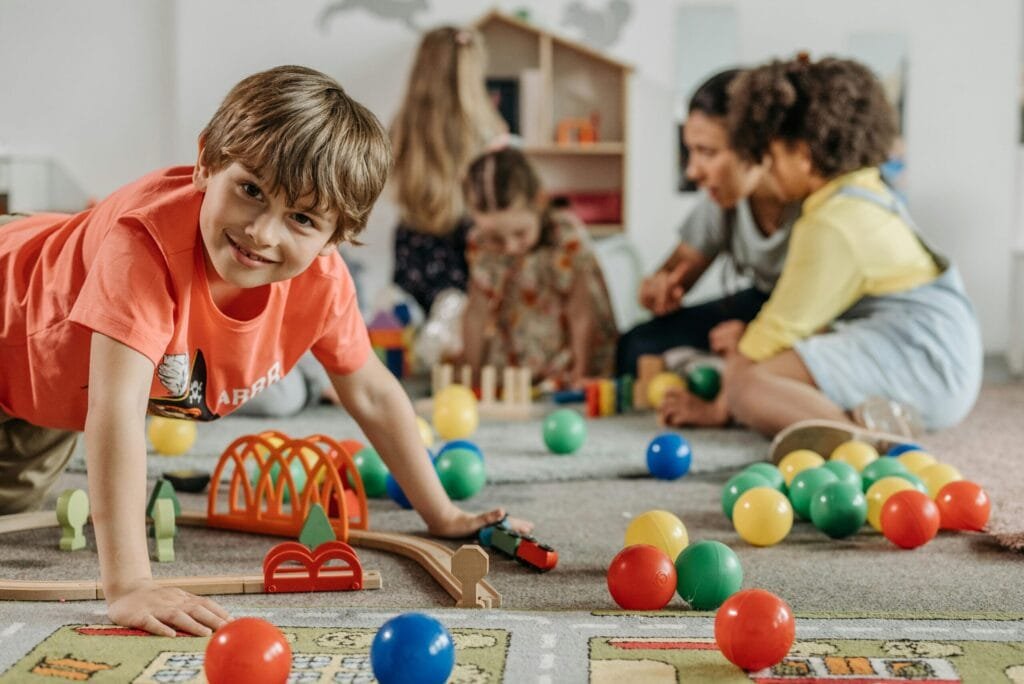
Key Takeaways
- Gifted children often experience intense emotions that require support beyond academics.
- Play helps develop emotional resilience, flexibility, and coping skills in gifted youth.
- Structured and unstructured games provide a safe space to fail, adapt, and grow.
- Parents play a vital role in guiding emotional development through playful connection.
- Educational games, when chosen intentionally, support both emotional and cognitive needs.
The Emotional Gap Behind Gifted Intelligence
If you’re the parent of a gifted child, you’ve likely noticed how fast your child’s mind works. They may have been speaking in full sentences before other kids could form two-word phrases, or questioning life, death, and black holes at age five. It’s astonishing—and a little overwhelming.
But while their intellect races ahead, many gifted children are still catching up emotionally. They may break down after small disappointments, avoid new challenges for fear of failure, or become rigid when things don’t go as planned. As a coach for gifted teens and a parent myself, I’ve seen this tension play out over and over again.
And yet, there’s a deceptively simple tool that can ease this tension, one that’s often overlooked: play.
Emotional Intelligence Is Built, Not Born
Giftedness doesn’t equal emotional maturity. In fact, many gifted children are emotionally intense—experiencing deeper reactions to everyday stimuli. They might be praised for how articulate they are, while secretly struggling with perfectionism, anxiety, or social awkwardness.
What helps build emotional muscles in these children isn’t just more intellectual stimulation—it’s the chance to play freely, without expectations. Whether it’s cooperative board games, imaginary roleplay, or age-appropriate physical games, play becomes a lab for emotions: a place where kids can experiment, react, adapt, and grow.
Dr. Linda Silverman, a leading expert in gifted psychology, notes that “gifted children are often as advanced emotionally as they are intellectually—but only in certain areas. In others, they may feel overwhelmed and under-equipped.” This uneven development makes safe emotional environments all the more vital.
The Link Between Play and Emotional Resilience
Play is more than entertainment. For gifted children, it’s a critical space where they learn to:
- Handle frustration (when they don’t win or when plans change)
- Collaborate with others (a skill some gifted kids struggle with)
- Accept imperfection (not everything works out on the first try)
- Process emotions through symbolic storytelling or physical movement
In fact, a 2023 study from the University of Connecticut emphasized how educational play enhances emotional flexibility and social cooperation, especially in children who tend toward rigid or perfectionistic thinking.
Interestingly, while reading about early childhood education recently, I came across an article that offered a beautifully organized breakdown of educational games by age group. It categorized activities from birth to age 10, showing how each game could support different areas of development like logic, language, and motor skills. The article made me reflect on how those same games—while often seen as tools for general development—can be powerful emotional supports for gifted children when used intentionally.
You can find the article here:
https://vkcircle.comvkcircle.com
The High-Achieving Child Who Can’t Handle Losing
One of the most common concerns I hear from parents is, “My child is so smart, but they melt down when things go wrong.” Gifted children often develop fixed mindsets early—believing they must always succeed to be valued. That creates intense pressure.
Play helps deconstruct that pressure. When the stakes are low, and the outcomes are variable, children begin to rewire their emotional patterns. They discover that:
- Mistakes are recoverable.
- Losing doesn’t mean losing love.
- Laughter and connection matter more than winning.
I once coached a teenager who refused to play any game unless he knew he could win. The fear of losing paralyzed him. After weeks of structured, low-stakes play—where the goal was to have fun, not achieve—he started letting go. He laughed when he made mistakes. He began inviting others to play. And most importantly, he stopped tying his worth to outcomes.
That kind of transformation doesn’t happen in a classroom or a test—it happens on a floor with puzzle pieces, cards, or a silly made-up story.
Your Gifted Child Doesn’t Need to Earn Rest
As parents, we sometimes feel like we must “maximize potential.” But true potential isn’t just about academic output—it’s about mental health, relationships, joy, and flexibility. Giving your child time and space to play is not a distraction from their path; it is the path to whole-child development.
As a parent of an 8-month-old myself, I think a lot about what kind of emotional foundation I want to build as my daughter grows. I don’t know yet if she’s gifted—but I do know that the way she experiences play, connection, and emotional safety will shape her far more than test scores ever could.
I want her to know that she is loved when she’s succeeding and when she’s struggling. And I want her to know, deeply, that rest and joy aren’t things she has to earn—they are part of a well-lived, emotionally healthy life.
If You Want to Dive Deeper
If you’re interested in reading the original article that sparked this reflection—with dozens of game ideas organized by age and purpose—you can find it here:
https://vkcircle.comvkcircle.com
It’s a beautiful starting point for any parent who wants to support not just their child’s brain, but their heart.

A certified Heal Your Life® Coach with 20+ years in education and emotional development. Supports gifted teens in navigating anxiety, perfectionism, and identity challenges, while equipping parents with practical tools for lasting transformation. Sessions blend emotional healing, mindset mastery, and strategic empowerment.



